Matthew G. Andersson is a corporation founder and former CEO, management consultant and author of the upcoming book “Legally Blind,” concerning law education. He has been featured in the New York Times, the Wall Street Journal, the Financial Times, The Guardian, Time Magazine, the Chronicle of Higher Education, the Journal of Private Equity, the National Academy of Sciences, and the 2001 Pulitzer Prize report by the Chicago Tribune. He has been a guest on CBS, ABC, CNN, Bloomberg, Public Television, and the BBC, and received the Silver Anvil award from the Public Relations Society of America. He has testified before the U.S. Senate, and Connecticut General Assembly concerning higher education. He attended Yale College where he studied Russian language under department chairman Alexander Schenker; the University of Texas at Austin, Center for Russian, East European, and Eurasian Studies, and the LBJ School of Public Affairs where he worked with economist and White House national security advisor W.W. Rostow. He received an MBA from the University of Chicago Graduate School of Business in Barcelona, Spain and the U.S. He is the author of a text on law and economics used at Northwestern University, DePaul University College of Law, and McGill University Faculty of Law. He has lived and worked in Russia and Eastern Europe for a Fortune 100 technology company in strategic joint ventures. He is a jet command pilot, flight instructor, and graduate of Embry-Riddle Aeronautical University.
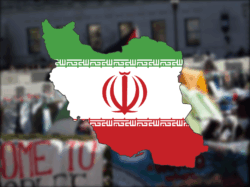
Much of the global press is engaged in broad speculation over how Iran will respond to the United States’ recent bombing of its nuclear facilities. Coverage includes warnings about potential domestic fallout and calls for heightened vigilance against possible retaliation by Iranian “sleeper cells” already within the U.S. This overlooks, however, that mainstream partisan political […]
Read More
Editor’s Note: This article was originally published by Hartford Courant on May 06, 2025. With edits to match MTC’s style guidelines, it is cross-posted here with permission. The humanities are more important than ever, and in many ways, they represent the essence of the university’s mission, especially in how they protect and reinforce our heritage and […]
Read More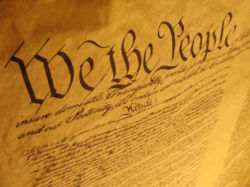
Editor’s Note: This article was originally published by American Thinker on May 05, 2025. With edits to match MTC’s style guidelines, it is cross-posted here with permission. President Trump is getting a lot of unwarranted media criticism for stating that he isn’t a lawyer who can give a formal constitutional law opinion on due process for illegal border crossers. […]
Read More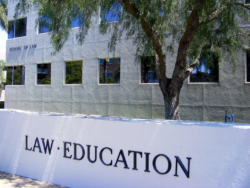
In business, when something is overproduced, it gets discounted in a “clearance sale” or abandoned, scrapped, put in storage, or “mothballed.” Old manufacturing plants close down, they are absorbed, they may merge, or get replaced with something entirely new, due to obsolescence and new technology. In environmental management, pollution can be controlled by stopping it […]
Read More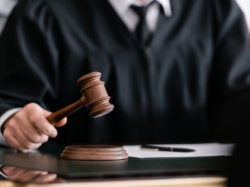
Editor’s Note: This article was originally published by American Thinker on March 20, 2025. With edits to match MTC’s style guidelines, it is cross-posted here with permission. The gang of lower court judges that is interfering with President Trump’s executive responsibilities is not unique. It is hard to find a judge who can separate politics and law, or […]
Read More
When I was a business executive and CEO in the transportation and technology sector, we used a concept called “lean thinking.” This concept is a manufacturing philosophy developed by Massachusetts Institute of Technology (MIT) Professor Jim Womack, who has been called the “Godfather of Lean,” a nickname that stemmed from his work as a consultant […]
Read More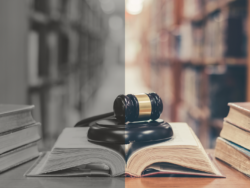
Consumer rights advocate and Harvard Law graduate Ralph Nader once addressed a group of law students at his alma mater. Among other criticisms of legal training, he suggested that there are two law schools: a school of the law and a school of the unlawful. He had the right observation but the wrong diagnosis—he focused […]
Read More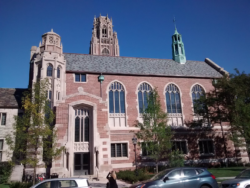
The Chicago school of economics may be the most effective academic source of American economic policy. “It is widely believed that politics and economics are separate and largely unconnected; that individual freedom is a political problem and material welfare an economic problem; and that any kind of political arrangements can be combined with any kind of […]
Read More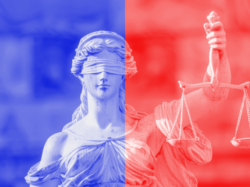
“Political parties live in a house of power. They are organizations for social fighting. The contents of a definite moral choice are never selected. The only criterion is the ubiquitous use of a method.” C. Wright Mills, Sociology and Pragmatism: The Higher Learning in America. Training for irregular political operations and lawfare originates from an […]
Read More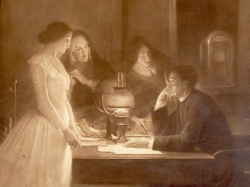
Dedicated to my father, Lee, on his 96th birthday—my first philosophy teacher “By speculating upon causes, we could solve no difficulty about origin and purpose. Our real business is to analyze accurately the circumstances of phenomena, and to connect them by the natural relations of succession and resemblance.” Comte, Positive Philosophy (tr. Martineau, 1858) “Most […]
Read More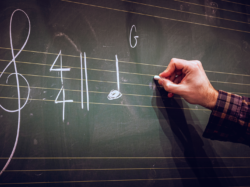
“The arts, taken as a whole, quietly govern the metaphysical heritage of our Western tradition.” Hans Georg-Gadamer, Theory, Culture and Society “Words are the gods living within a convention, but tones are the daemons.” Goethe, 25 February 1870, Cosima Wagner’s Diary, 1: 193 Music thrives across our nation’s universities because the students themselves create it. […]
Read More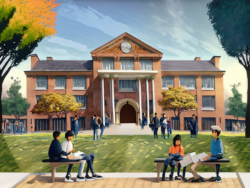
In most parts of the world, lawyers are formally trained in an undergraduate degree program. The Bachelor of Law (LL.B), is also an accelerated three-year curriculum. In the United States it takes over twice as long. First you need a 4-year undergraduate degree in any subject—a gratuitous requirement, as there is no such thing as […]
Read More
Academic freedom is constantly referred to by faculty and administration. It is often used as a proxy for free speech, and a free speech absolutism where “anything goes.” It serves as an academic totem; as an indulgence, that faculty seem to consider beyond any boundaries of definition or responsibility. Limiting academic freedom would delimit faculty […]
Read More
“Thinking is not a matter of making definitions in one place, classifying things in another, inferring in a third, and making practical judgments in some fourth place. How these activities are organically related to each other and to the use of language, a systematic exposition of the nature of thinking should make clear.” — Arthur […]
Read More
“Philosophy would indeed be the easiest of studies, if we might arrive at truth by assuming that one of two accounts must be true, and prove the one by disproving the other; but in philosophy this is just what cannot be done.” F.H. Bradley, Ethical Studies, 1927 “It will sometimes strike a scientific man that the […]
Read More
“All sentiment is right; because sentiment has a reference to nothing beyond itself, and is always real, wherever a man is conscious of it. But all determinations of the understanding are not right; because they have a reference to something beyond themselves, to wit, real matter of fact; and are not always conformable to that […]
Read More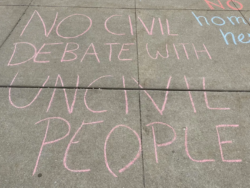
Law students at the University of Chicago recently used colored playground chalk to protest a conservative speaker. This raises the question: are they maturing adults or regressing adolescents? Perhaps philosophy has some lessons for how to understand the problem, and where to look for a solution. One of my favorite philosophers is Robert Hanna. He specializes in the writings […]
Read More
The purpose of ruthless objectivity and extreme expertise “Those who are looking ahead to a new movement in education, should think in terms of Education itself. Any movement that thinks and acts in terms of an ‘ism’ becomes so involved in reaction against other ‘isms’ that it is unwittingly controlled by them. For it then […]
Read More
“If a belief guides practical actions, it works best if it is true, but if a ‘belief’ defines a group identity then it can still work, or even work better, if it is not true.” – Neil Van Leeuwen, “The Puzzle of Belief,” Cognitive Science Vol. 47 (2023) The comments and reactions to a recent […]
Read More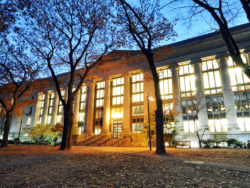
“Sheet music is a bunch of black marks; they have no significance. I play violin, but in order to play well you have to be much more than a violin player. There is an entire world that lives together with it, like the currents in the ocean.” – Ivry Gitlis As a 2022 year-end exercise, […]
Read More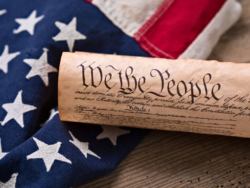
Our founding document was designed to maintain a wall between your private life and government. Modern law schools profit by tearing it down. “A free society is as much offended by the dictates of an intellectual oligarchy as by those of an autocrat.” – Patrick Arthur Devlin, The Enforcement of Morals “In the social domain, […]
Read More
A Two-Part Essay on the University Law School in the American Legal System “The logic of the common law is really economics. The teaching of law could be simplified by exposing students to the clean and simple economic structure beneath the particolored garb of legal doctrine.” Richard A. Posner In Part 1 of this essay, […]
Read More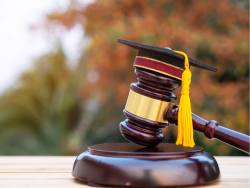
A Two-Part Essay on the University Law School in the American Legal System “Darwinian theory applies to many other aspects besides the natural sciences: An institution must be understood by the way it developed as well. How did it arise and what have been the stages through which it has passed? Is there any justification for […]
Read More
The legal industry, and the law academy in particular, are in a high state of contention concerning one of their most protected traditions: the Law School Admission Test, or LSAT. The American Bar Association (ABA) that regulates our law-school industry is thinking of doing away with it. This exam is among the most heavily weighted […]
Read More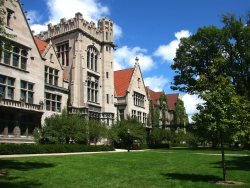
An alumnus remembers a university professor and how he demonstrated the promise of higher education. With so many problems plaguing higher education, I thought it would be healthy to recognize one example of the often unexpected ways in which the modern university brings people together. A long-time member of the University of Chicago faculty recently […]
Read More
“Professors believe they should be free to express their opinions and free of penalties for themselves and their institutions. That is asking quite a lot. If we could decrease our entanglement in contemporary policy issues, whether by anonymity or self-discipline, we would not invite the often-correct suspicion that professional knowledge was being used for partisan […]
Read More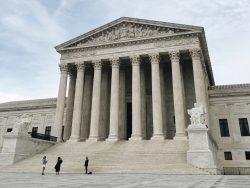
“When economists find that they are unable to analyze what is happening in the real world, they invent an imaginary world which they are capable of handling.” Nobel law and economics scholar Ronald Coase, University of Chicago Law *** Two law professors from the University of Chicago and UCLA, respectively, recently wrote a fascinating essay […]
Read More
Some Thoughts On the University of Chicago’s New Conservative Student Newspaper “In place of seeing a mature person as a source of rational discourse, we might see them as reacting appropriately to situations, in terms of disciplined perception. Today we have techniques of manipulation on a scale that would have made Callicles proud. If there […]
Read More
In a previous MTC article, I discussed some of the challenges in the format and economics of modern American legal education. That format includes an elongated graduate program (three years) on top of a four-year undergraduate degree. I argued that the UK employs a better method through its three-year undergraduate LL.B (Bachelor of Laws) and […]
Read More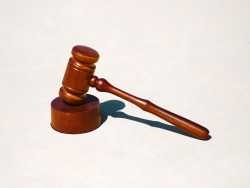
For a model, we must turn to the U.K. “We learn how to behave as lawyers, soldiers, merchants, by being them. Life, not the parson, teaches conduct.” Letter from Oliver Wendell Holmes to Frederick Pollock, April 1926 “As a man is said to have a right in his property, he may equally be said to […]
Read More